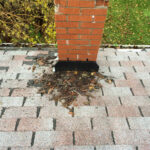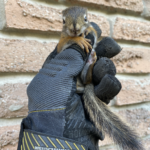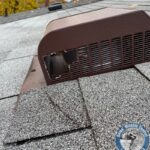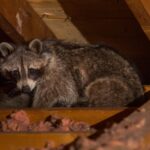Raccoon roundworm, also known as Baylisascaris procyonis, is a type of parasitic roundworm commonly found in raccoons. While these worms are typically harmless to raccoons, they can be dangerous to humans and other animals if the eggs are ingested. In this blog post, we’ll take a closer look at raccoon roundworm and what you need to know to protect yourself and your loved ones.
First of all, it’s important to understand how raccoon roundworm is transmitted. Raccoons shed the eggs of the roundworm in their feces, which can then contaminate soil, water, and other surfaces. If a human or animal ingests these eggs, they can hatch and develop into adult roundworms in the intestines.
Symptoms of infection with raccoon roundworm can vary depending on the number of eggs ingested and the location of the adult worms in the body. In mild cases, symptoms may be similar to those of other types of roundworm infections and may include stomach pain, nausea, and diarrhea. In more severe cases, the larvae can migrate to other organs in the body, causing more serious symptoms such as liver or lung damage, or even blindness.
To prevent infection with raccoon roundworm, it’s important to avoid contact with raccoon feces and to properly dispose of any feces you come across. If you live in an area with a high population of raccoons, you may also want to take steps to raccoon-proof your property, such as securing trash cans and removing any potential food sources that may attract raccoons.
If you suspect that you or someone you know may have been infected with raccoon roundworm, it’s important to see a doctor immediately. The infection can be treated with medication, but early diagnosis is key to ensure the best possible outcome.
In conclusion, raccoon roundworm is a serious health concern that can affect humans and other animals. By taking steps to avoid contact with raccoon feces and promptly seeking medical treatment if you suspect an infection, you can protect yourself and your loved ones from the dangers of raccoon roundworm.









